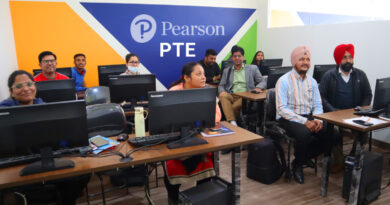Courses Offered Under PGDCA: Complete Guide to Subjects, Modules, and Career Relevance
The Post Graduate Diploma in Computer Applications (PGDCA) is one of the most practical and career-focused diploma programs available for graduates who want to step into the world of information technology and software development. While the course duration is just one year, it covers a comprehensive range of subjects that prepare students for a variety of roles in both the private and public sectors.
In this blog, we will explore in detail the courses (subjects/modules) offered under the Online PGDCA program, how each of them contributes to skill development, and what career prospects they open up for you.
What is PGDCA?
PGDCA is a postgraduate-level diploma designed to provide a strong foundation in computer science, software development, and information technology. It is ideal for students from various streams — arts, commerce, or science — who want to enter the IT field without committing to a full master’s degree.
The program is generally divided into two semesters and offers both theoretical knowledge and practical experience. The curriculum is updated regularly to include the latest developments in software, programming languages, and computer applications.
Semester-Wise Subjects in PGDCA
Let’s now break down the major subjects and what you can expect to learn in each.
Semester I: Core Foundation
1. Fundamentals of Information Technology
This course introduces the basics of IT, including computer hardware, software, input/output devices, memory, and data representation. It helps students understand how computers function and how data is processed.
Key topics:
- Introduction to computers and their generations
- Data and information
- Input/output devices
- Software types: system, application, utility
2. Programming Principles and Algorithms
Programming is the heart of computer applications. This course helps students understand basic programming logic, flowcharts, and algorithm design.
Key topics:
- Introduction to algorithms
- Flowchart designing
- Control structures (if-else, loops)
- Functions and recursion
3. Soft Skills and Communication
Soft skills are just as important as technical knowledge. This module enhances communication, teamwork, and interview readiness.
Key topics:
- Verbal and non-verbal communication
- Resume writing
- Presentation skills
- Interview preparation
4. Software Engineering
Software Engineering teaches students the methodology and processes behind creating efficient and reliable software.
Key topics:
- Software development life cycle (SDLC)
- Agile and Waterfall models
- Requirement gathering
- Testing and maintenance
5. Business Process and Data Management
This course connects IT with business functions and teaches how software solutions are used in industries like banking, insurance, and retail.
Key topics:
- Business Process Modeling
- ERP systems
- CRM basics
- Data flow diagrams
6. Oracle and SQL Database Management
Database management is essential for data storage and retrieval. This course trains students on how to use Oracle and SQL to manage structured data.
Key topics:
- Database concepts
- SQL queries (SELECT, INSERT, UPDATE, DELETE)
- Oracle architecture
- Data integrity and relationships
7. Web Programming (HTML, CSS, JavaScript Basics)
This course introduces web development through front-end tools. It enables students to create simple websites and understand the structure of web pages.
Key topics:
- HTML5 tags and elements
- CSS styling and layouts
- Introduction to JavaScript and DOM
Semester II: Advanced Specialization
1. Visual Basic (VB.NET or VB 6.0)
This course focuses on building Windows-based applications using the Visual Basic programming language.
Key topics:
- Event-driven programming
- Form designing
- GUI-based application development
- Database connectivity
2. Java Programming
Java is a powerful object-oriented language widely used in enterprise and mobile application development.
Key topics:
- Java basics: classes, objects, methods
- Exception handling
- File I/O
- Applet and AWT
3. Database Management Systems (DBMS)
While Oracle was introduced in Semester I, this course dives deeper into relational databases and management systems.
Key topics:
- Normalization
- ER diagrams
- Transactions and concurrency
- Data security
4. Data Structures and Algorithms
This subject helps build the logical foundation for complex programming and problem-solving.
Key topics:
- Arrays, Linked Lists, Stacks, Queues
- Trees and Graphs
- Sorting and Searching algorithms
- Time and space complexity
5. Project Planning and Organizational Behavior (PPM & OB)
This hybrid course covers project management skills and insights into human behavior in organizations.
Key topics:
- Project lifecycle
- Budgeting and scheduling
- Leadership and motivation theories
- Team dynamics
6. Project Work
In the final semester, students must complete a live project or internship that applies the concepts learned throughout the course.
Project Examples:
- Inventory Management System
- Online Exam Portal
- Payroll Management System
- E-commerce website
7. Lab Practicals
Hands-on lab sessions are conducted for Oracle, Java, Visual Basic, and Web Programming to reinforce the learning through real-time coding practice.
What Skills Will You Gain?
By completing PGDCA, students develop a wide range of skills, including:
- Programming knowledge in C, Java, and Visual Basic
- Database handling using SQL and Oracle
- Web development using HTML, CSS, and JavaScript
- Software development process understanding
- Effective communication and workplace readiness
- Problem-solving and analytical thinking
- Project planning and execution skills
Certifications & Add-ons
Some institutions also offer add-on certifications along with PGDCA:
- Basics of Cybersecurity
- Cloud Computing Essentials
- Data Analytics Tools (Excel, Power BI)
- Python Programming (in some updated curriculums)
These optional modules further enhance your profile in the job market.
Career Paths After PGDCA
With skills in software, web development, and databases, PGDCA graduates are eligible for a range of job roles:
| Job Role | Key Responsibility |
| Software Developer | Design and code desktop or web applications |
| IT Support Analyst | Troubleshoot technical issues for users |
| Database Administrator | Manage and secure databases |
| Web Designer | Build and maintain websites |
| System Analyst | Evaluate and improve IT systems |
| Java Programmer | Develop apps using Java |
| Network Administrator | Manage networks and system infrastructure |
Salary Expectations
While salaries vary by role and experience, here’s a general idea:
- Entry-level PGDCA graduates can earn ₹2,00,000 to ₹4,00,000 per year.
- Software engineers and developers earn ₹4,00,000 to ₹6,00,000 on average.
- Experienced professionals (3–5 years) can go beyond ₹8,00,000 per annum.
- Freelancing or consulting opportunities are also open for web developers or support experts.
Higher Education After PGDCA
If you wish to continue your studies after PGDCA, you can pursue:
- MCA (Master of Computer Applications)
- M.Sc. in Computer Science or IT
- MBA in IT or Systems Management
- Advanced certifications in Data Science, AI, or Networking
These options can elevate your qualifications and open higher-level roles in the future.
Final Thoughts
The PGDCA course is more than just a diploma — it’s a gateway to the fast-growing world of IT and computer applications. The variety of subjects offered during the one-year program ensures that students graduate with both depth and breadth of knowledge. Whether you want to get a job right after the course or go for higher studies, PGDCA gives you a strong start.
It’s cost-effective, time-saving, and job-oriented — a perfect choice for any graduate looking to enter the IT field with confidence.




